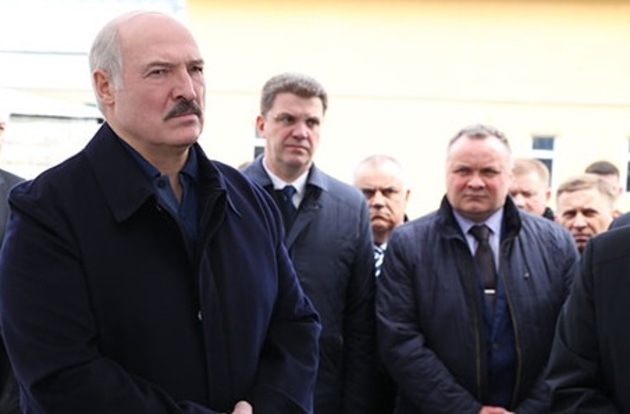President Alexander Lukashenka is a covid-19 holdout. Despite nearly 5,000 confirmed cases and over 40 coronavirus deaths, Belarus remains the only country in Europe denying the coronavirus danger, The Washington Post writes in the article The Belarus government is largely ignoring the pandemic. Here’s why. The president has made his position clear — there is no sense in declaring total quarantine, and the fear of coronavirus is a “psychosis” that wise Belarusian people should ignore.
Minsk city authorities introduced some mandatory coronavirus measures on April 7. These measures apply only in the capital, and require everyone to regularly wash hands in churches and monasteries, disinfect public transportation and places of public gatherings, wear masks in beauty salons, place tables in food service facilities no closer than 1.5 meters, and stop visiting nursing homes.
Coronavirus measures remain advisory elsewhere, but are not mandatory. Throughout the country — including Minsk — schools, restaurants and gyms are open, people go to work, and public transportation continues to operate without interruptions.
Why does the government hold fast to this denial of the coronavirus threat? And what does this tell us about how autocracies respond to global threats generally? Belarus has limited economic resources and presidential elections are coming up on Aug. 30 — these two factors may help explain the government’s no-quarantine position. But the country’s unique economic and geopolitical situation also helps explain why autocrats around the world have a wide range of pandemic responses. Here’s what you need to know:
Belarus has been coasting on other countries’ efforts. The Belarusian government has been benefiting from other countries’ response to the virus, as well as the response of its own people. Thus far, the government has made only limited efforts and financial contributions to contain the pandemic.
Belarus is a landlocked nation, and its neighbors — Poland, Ukraine, Lithuania, Latvia and Russia — closed their land borders within the first two weeks of March, with limited exceptions for cargo transport and diplomatic travelers. These moves effectively isolated Belarus, without any effort by the government. This allows the Belarusian government to “free ride” — it now does not need to support individuals and companies that would have lost work from an official lockdown or stringent measures to limit exposure to coronavirus in Belarus.
Despite the limited official response, Belarusian doctors joined the global flash mob #StayAtHome and have been urging the people to stay at home to minimize the number of contacts. The Belarusian opposition and civil society leaders called for a "People’s Quarantine” from March 23 through April 30, asking people to stay home, keep their kids home from school and minimize all social contact.
While the official media have been downplaying the severity of the crisis, many Belarusians have been taking precautions and finding ways to self-isolate — without waiting for decisions from above.
In summer 2020, Alexander Lukashenko will run for his sixth term in office. By not labeling the virus as a threat, the Belarusian government diverts attention from its limited capabilities to assist people in need. The country’s gross domestic product grew just 1.5 percent in 2019, slowing from a 3.05 percent expansion in 2018. The coronavirus remains the root cause for the growing economic hardships, limiting the government’s vulnerabilities to shared and emotionally charged opportunities for protest mobilization triggered by economic factors.
Moreover, the global pandemic has exacerbated Belarus’s economic problems in a variety of ways, including the appreciation of the dollar and suspension of work by foreign companies. For example, the largest Belarusian passenger car manufacturer — BelGee — has experienced delays in supplies of components for Geely cars from China. The largest windshield factory for Geely is located in Wuhan, the city where the coronavirus originated.
If the pandemic threat resolves before the presidential election, then the government will be able to credit itself with the successful fight against the coronavirus. And if the pandemic continues longer, this approach could well backfire, triggering popular unrest in the country, and jeopardizing relations with the West.






